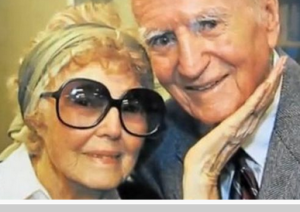When my father died ten years ago and I found out he had named me as his executor, I thought “Okay. It’s no big deal.” Was I ever wrong! I didn’t realize how much time, effort and frustration would be necessary to get everything settled. And I didn’t know that I would also have to be a detective.
AARP recently published an article that listed five questions you should ask yourself before you agree to become an executor. You might feel flattered if asked but think carefully about the questions and be sure it’s something you’re comfortable taking on.
1. Do you have the time to take on this project? When I started the process, I didn’t realize that it would be more than a year before my dad’s estate would be settled and that, during that year, getting all of the paperwork done and answering all of the government’s questions would often feel like a full time job.
2. Do you have the skills to handle the process? You have to be very organized and good with numbers. Keeping massive spread sheets and tracking all of the paperwork nearly drove me crazy.
3. Do you have the temperament to deal with all of the details? I am a fairly calm, easy going person but I found myself getting very frustrated when confronted by people who made ridiculous demands. One example I can remember is when the state of New Jersey (where my father died) asked me to sign a bunch of papers in black ink, get them notarized and send them in. I did that and was shocked when I received a letter from a government office saying that I needed to resign them in blue ink, get them notarized again and send them back. I did it and got one more letter. It told me that I had not completed the forms correctly. Believe it or not, it the letter said that the forms needed to be signed in black ink!
4. Do you know the rules of the state in which the estate is being settled? Estate rules are very complex and I ended up hiring an attorney to help me get everything processed correctly. Many people take this step after realizing what is involved. For example, if you incorrectly declare the value of the estate, there can be legal repercussions, not just for the estate but for you as well.
5. Can you afford to be the executor of the estate? I lived in California and my dad died in New Jersey. Some things just couldn’t be handled by phone; this necessitated a few expensive trips back and forth across the country. And it’s not just the money. What’s your time worth? Can you afford to handle this job for nothing? In some states, executors are permitted to charge a fee that is a percentage of the value of the estate. However, since this money comes out of the estate, taking a fee may cause conflict with family members.
If you agree to be an executor, be prepared to devote a great deal of time to the project. Be patient and don’t let little things get to you. Stay organized and check every detail. You will get through settling the estate…eventually.
For more information about estate planning and settling an estate, go to www.diesmart.com.
 But, while thinking about this great couple, being a part of the Die Smart community I can’t help but think about their estate. It’s bad enough if one person dies and a family member has to settle the estate, including dealing with lawyers, probate court and the mounds of paperwork that are necessary. But the double work of settling the estates of two people can be massive.
But, while thinking about this great couple, being a part of the Die Smart community I can’t help but think about their estate. It’s bad enough if one person dies and a family member has to settle the estate, including dealing with lawyers, probate court and the mounds of paperwork that are necessary. But the double work of settling the estates of two people can be massive.

